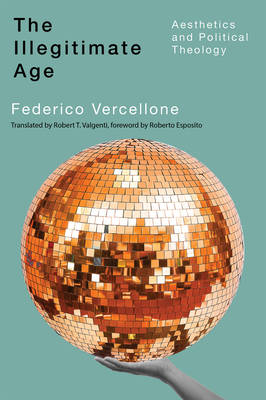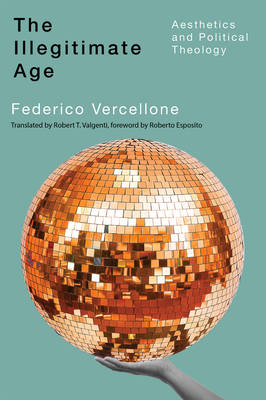
- Retrait gratuit dans votre magasin Club
- 7.000.000 titres dans notre catalogue
- Payer en toute sécurité
- Toujours un magasin près de chez vous
- Retrait gratuit dans votre magasin Club
- 7.000.0000 titres dans notre catalogue
- Payer en toute sécurité
- Toujours un magasin près de chez vous
44,95 €
+ 89 points
Description
Our age - saturated with media images and ever-present political crises - traces back to the beginning of Christianity and its messianic vision of the world. In the twentieth and twenty-first centuries, our sense of time and history has become apocalyptic. In The Illegitimate Age Federico Vercellone explains contemporary affinities for both apocalypse and media imagery from the perspective of political theology, drawing from St Paul's mysterious figure of the katechon - the withholding power that prevents the arrival of the Antichrist and the end of times while also delaying the Messiah, therefore containing the very evil it restrains. Vercellone highlights representation as a crucial aspect of the katechon myth, finding within it the roots of current political and aesthetic forms. In the context of contemporary populism, charismatic leaders build their power on presumed prestige, mimicry of sacred figures, and pandering invocations of kitsch, all recurrent aspects of the katechon and Antichrist trope in Western art and history. Political power, Vercellone argues, has been deeply aestheticized, and the path that led us here was laid long before mass media, mass consumption, and our society of the spectacle. A new interpretation of the political and aesthetic categories first suggested by Carl Schmitt, Walter Benjamin, and Jean Baudrillard, The Illegitimate Age turns a fresh lens on the legitimacy of political power, the appeal of populism, and the role of the image in our society.
Spécifications
Parties prenantes
- Auteur(s) :
- Traducteur(s):
- Editeur:
Contenu
- Nombre de pages :
- 152
- Langue:
- Anglais
- Collection :
Caractéristiques
- EAN:
- 9780228024491
- Date de parution :
- 17-06-25
- Format:
- Livre broché
- Format numérique:
- Trade paperback (VS)
- Dimensions :
- 140 mm x 216 mm
- Poids :
- 453 g

Les avis
Nous publions uniquement les avis qui respectent les conditions requises. Consultez nos conditions pour les avis.






